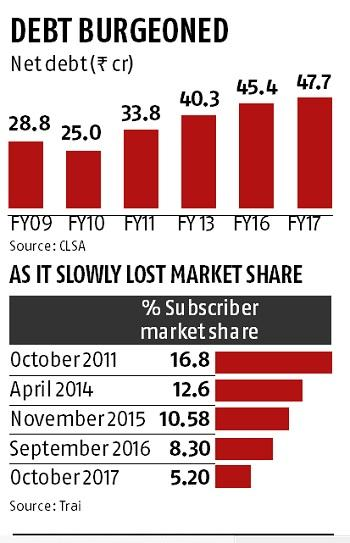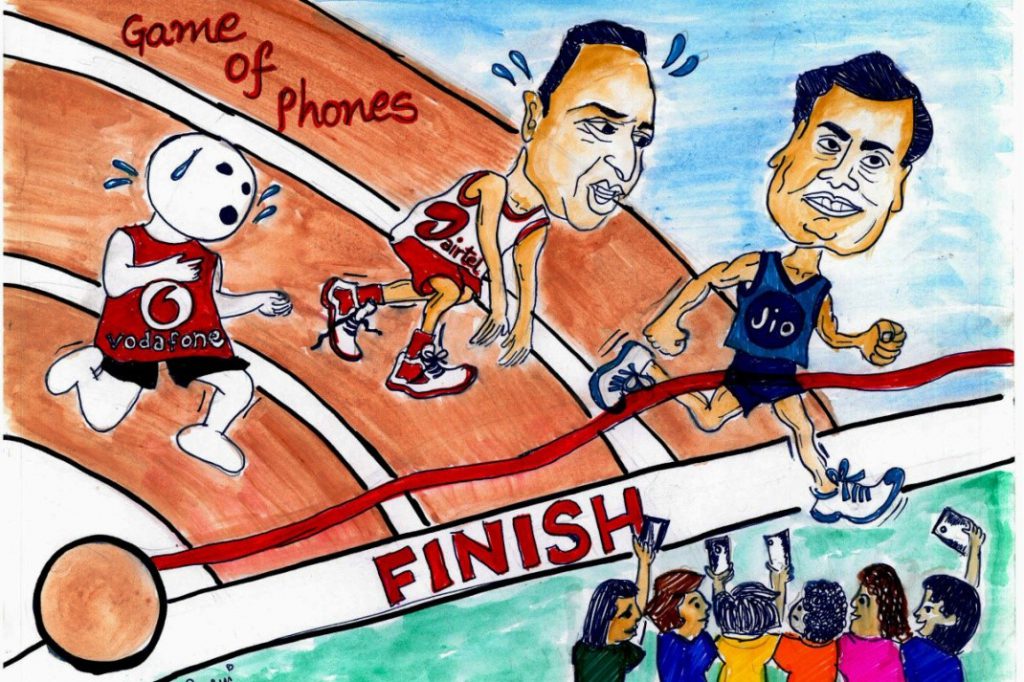By Jill Mehta, Freelance Consultant @ IndusGuru
“Every time you borrow money, you’re robbing your future self.” ―Nathan W. Morris
The decision to go into debt alters the course condition of the company. You no longer own it, you are owned. Anil Ambani led Reliance communication had a similar experience with debt.

[Source: Economic Times]
Rcom’s debt increased to Rs. 47000 crore over the past few years. It was saddled with huge debt and no plan for restructuring it until 2017 when matters became serious.
The journey of reliance communication started when Anil Ambani received the telecom company, Rcom as a part of the family settlement in 2005. Rcom did see its day of glory and profits back in those days. But that did not sustain for long.
#1 Broken promise:
Ericsson filed an application in Supreme Court against Rcom for default in payment of Rs.1100 crore. Rcom failed to make the payment even after Supreme Court’s clear judgment asking Rcom to repay the dues within the stipulated time. Failing the payment of dues, Ericsson moved to NCLT and filed 3 petitions against Rcom. Rcom instead agreed to pay 550 crore as settlement and filed for bankruptcy.
# 2 Shutting Businesses:
Rcom shut its wireless 2G and 3G business wherein it lost 80million customers which took a hit on their bottom line.
# 3 Fallen deals:
Rcom had planned to merge its wireless business with rival Aircel and also sell a 51 percent stake in its radio masts business to Canada’s Brookfield Infrastructure Group for Rs 10,000 crore.
Both the deals didn’t go through which apparently was the only hope of survival for Rcom to get out of its debt crisis
# 4 Elder brother not a saviour:
Reliance Communications had planned to sell spectrum to Mukesh Ambani’s Reliance Jio, but it did not materialize. The telecom ministry said either Rcom or Jio has to take charge of the debt. But Jio refused to do so, leaving Rcom again with no hope.
# 5 severe competitions:
Jio’s disruptive entry into the telecom market had stimulated an industry wide consolidation and winding up. Vodafone-Idea merger, Aircel, Docomo closure were all major consolidations leaving Rcom no chance of even participating in the race with the dominant players like Jio, Vodafone and Airtel.

# 6 Meetings in vain:
There was absence of complete approval & consensus among 40 lenders even after 45 meetings over the course of 12 months.
Owing to the many factors that led a well known and trusted brand Reliance to file for bankruptcy in NCLT giving a shock to the shareholders. An official statement by Reliance read “The board believes this course of action will be in the best interests of all stakeholders, ensuring comprehensive debt resolution in a final, transparent and time bound manner within the prescribed 270 days.”
Reliance share price plunged by 54% owing to the worst quarter (Q4 2018) results of Rcom.
While the fall of reliance was unexpected there are many lessons corporate firms can derive from Reliance.
- No company is too big to fail
- One must differentiate between good debt and bad debt. An optimal capital structure forms the core to running the business
- A futuristic view on turning around a company might fall flat if not thoroughly planned
- In today’s V.U.C.A world, a company has to be on the edge of the seat to adapt to the rapidly changing technological environment
#anilambani #rcom #reliancecommunications #businessnews
Disclaimer: The opinions expressed in this column are that of the writer. The facts and opinions expressed here do not reflect the views of IndusGuru Network Partners
